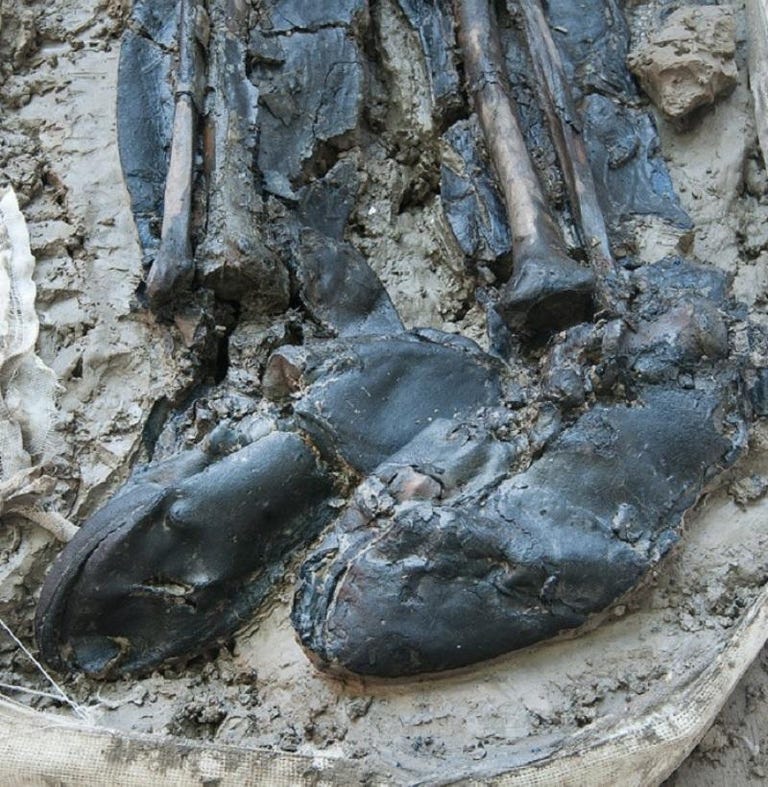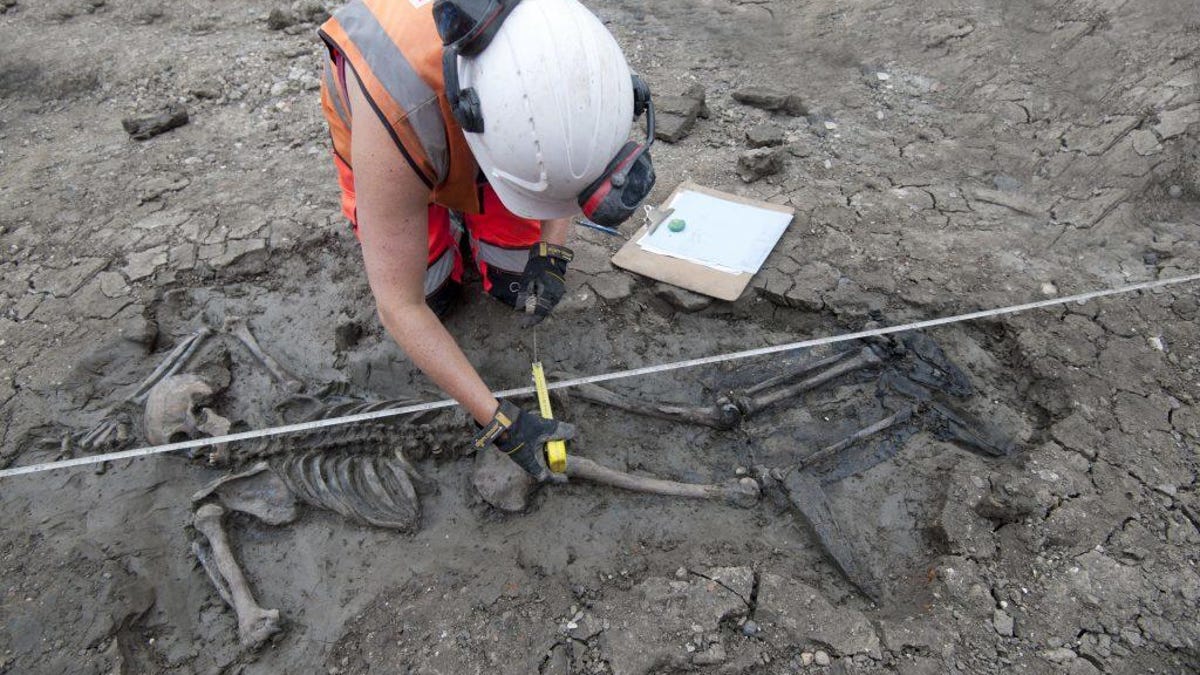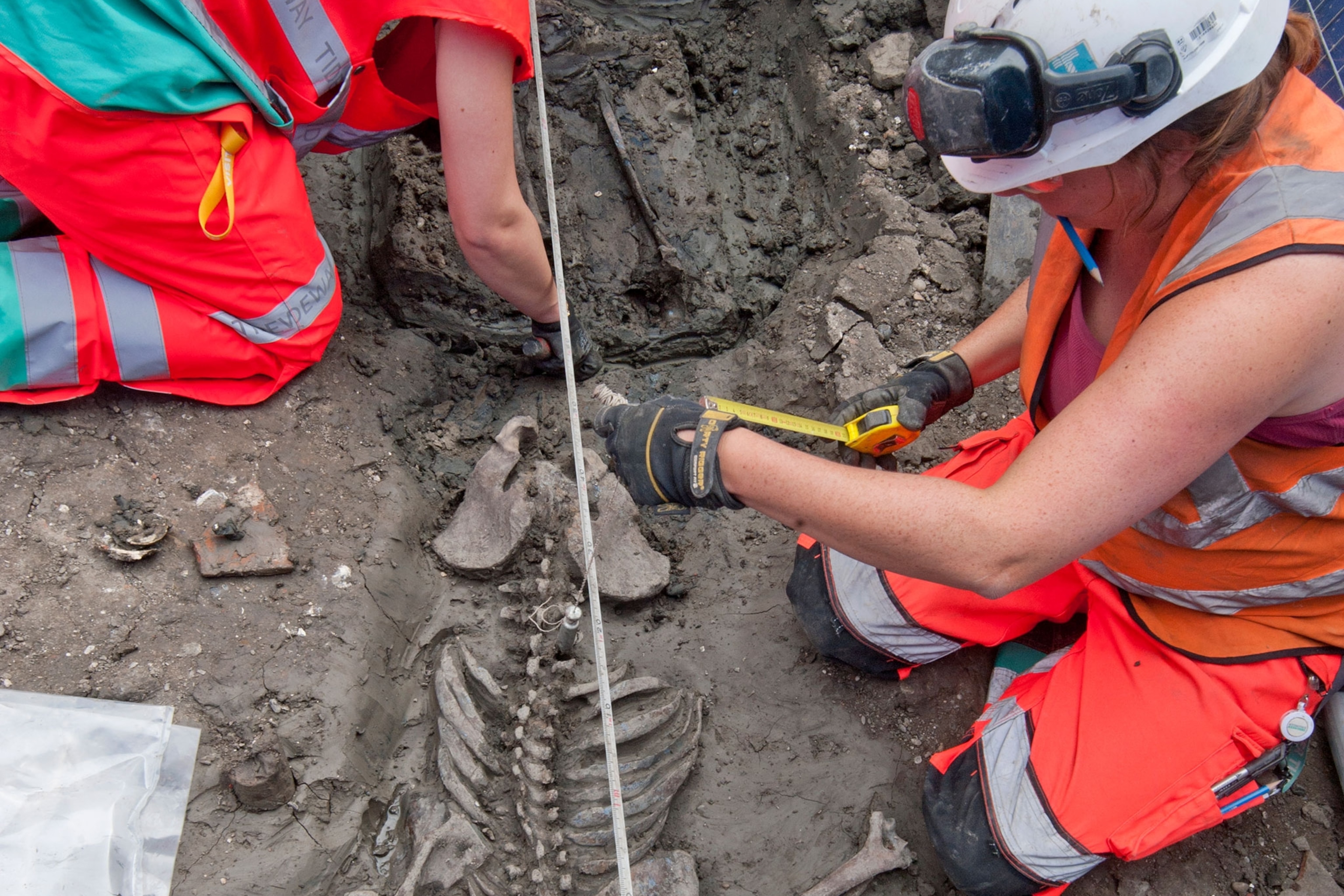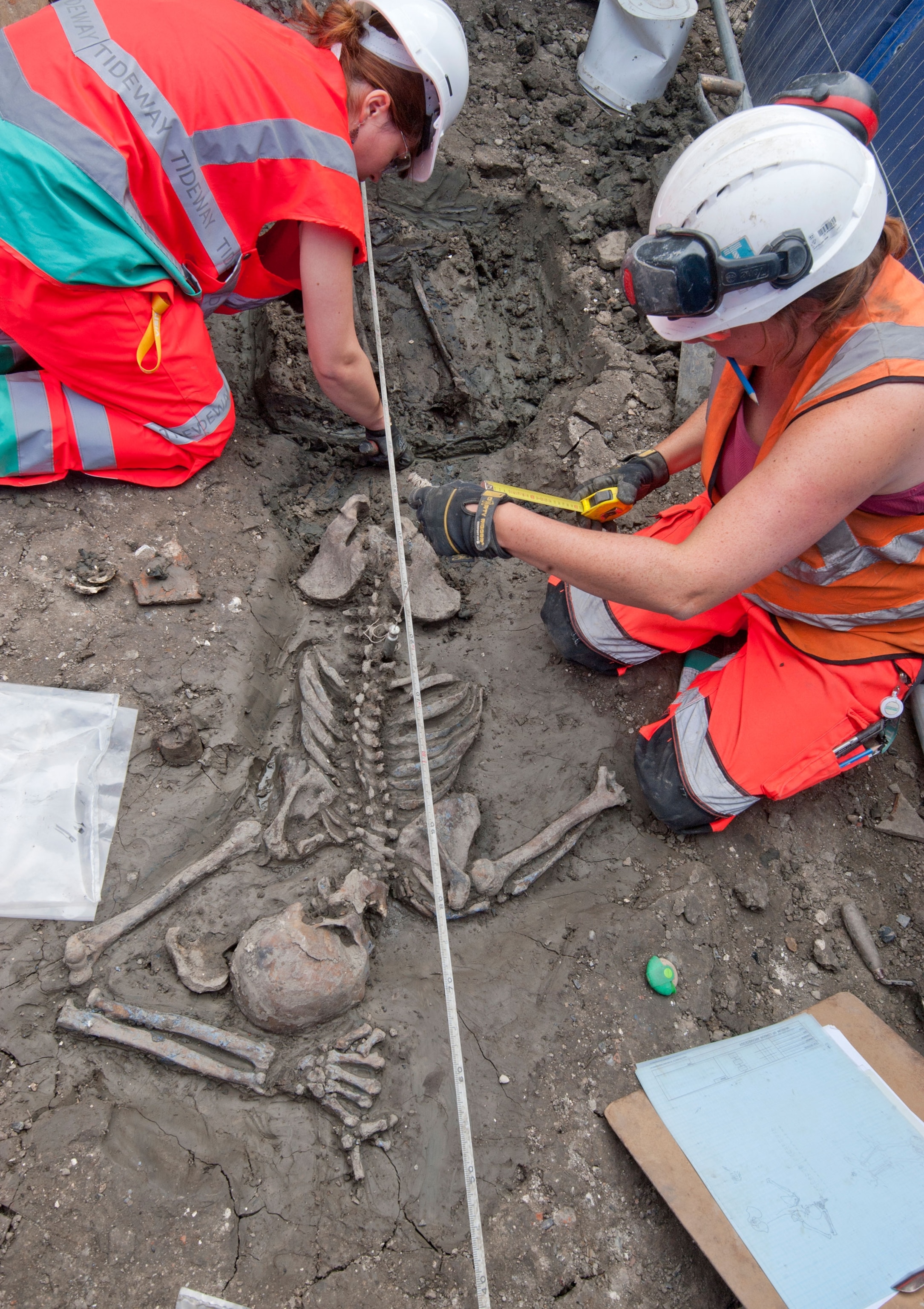A remarkable archaeological discovery at the Thames Tideway Tunnel construction site in London has uncovered a medieval skeleton still wearing its boots—an exceptional find offering rare insights into the life and sudden death of a man from over 500 years ago. This extraordinary discovery, made during the construction of London’s “super sewer,” is shedding new light on the past.
An Unusual Find: The Skeleton Still Wearing Boots
The discovery of a medieval skeleton still wearing its boots is incredibly rare. The boots, thigh-high and turned down at the tops, are likely expensive items from the late 15th century. Their remarkable preservation raises questions about the man’s social status and occupation. Archaeologists speculate he could have been a sailor, fisherman, or “mudlarker,” scavenging along the Thames.

The Manner of Death: A Life Cut Short
The skeleton’s position suggests an abrupt and unexpected death. Found face down with his arms in unnatural positions, the man was likely not intentionally buried, hinting at an accidental death. The presence of expensive boots is unusual for burials of this nature, suggesting he may have drowned in the river or become trapped in the mud, both common risks along the Thames at the time.

Physical Evidence: A Life of Hardship
Analysis of the man’s skeleton reveals that he was powerfully built from years of labor. Signs of osteoarthritis and spinal fusion indicate physical strain, suggesting he led a challenging life. Injuries like a broken nose and a limp further suggest hardship, giving us insight into the difficult conditions he faced.

Uncovering the Past: The Search for Answers
Ongoing investigations, including isotope analysis, aim to reveal more about his origins, diet, and whether he was a local or immigrant. These studies hope to shed light on his identity and provide the closure that his family never had.

Conclusion: A Glimpse Into Medieval Life
This discovery offers a rare and intimate view into the life of a medieval man, giving us a tangible connection to a time long gone. The preserved boots and skeleton tell the story of a life cut short, leaving behind clues that continue to captivate archaeologists and offer new understandings of medieval London.

